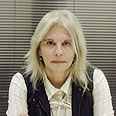
Democracy, anyone?
American poll on popularity of Arab leaders results in grim findings
Who’s the most popular ruler across the Arab world? It isn’t Mubarak, who enjoys skyrocketing sympathy that is erasing hatreds and clashes at this time, in the wake of the tragic death of his eldest grandson. It also isn’t Lebanon’s president, with everyone tense in the face of the large-scale terror attack feared ahead of the Lebanese parliamentary elections. It is certainly not Gaddafi either, the most veteran ruler, who enjoys cheers that are orchestrated from above through threats and bribes.
The answer is both surprising and disappointing: Bashar Assad, Syria’s president, reached the top spot in a poll whose findings stunned even those who carried it out - researchers at the Brookings Institute.
After 10 years of a regime characterized by violence and hesitance, the dictator from Damascus heads the parade. In third spot, unsurprisingly, we find the hero of the swamps and back alleys, Hizbullah Secretary General Hassan Nasrallah. The second spot was taken by a grey figure, almost unknown around here: Sheikh Mohammad al-Nayan, the ruler of Abu-Dhabi, the Gulf’s prosperous heaven.
The survey was undertaken in six states: Syria, Lebanon, Egypt, Jordan, Morocco, and Saudi Arabia. Two of the rulers of these states, Mubarak and the Saudi King, publically declared they are no friends of Assad because of the Iranian bear hug and because of his involvement in smuggling terrorists and stimulating terror attacks against them. Also, we shouldn’t forget the big mouth Assad has shown at their expense every time he faces a microphone or cameras.
More than anything else, the stars of this popularity parade blatantly attest to the bankruptcy of the vision of democracy and human rights born at the White House. Does anyone truly believe that if they flew the poll respondents far away from Syria, they would elect a ruler who clings to power only via threats, scare-mongering, and jails for political prisoners?
Heroes of fear
Nasrallah, the master of media spins (no longer around here at least, thank God,) also attests to the victory of exaggerated passion at the expense of the citizens: Thousands lost their homes and belongings, hundreds became disabled, and hundreds of others lost their lives three years ago. Nasrallah paid (using millions of dollars sent from Tehran,) and rushed to express his regret: Had I known, he smiled to himself, I would not have abducted the Israeli soldiers; had I guessed what was in store, I would not bring disaster and destruction. Nasrallah, just like Assad, is a hero of fear.
What are the conclusions of this poll? A ruler (Mubarak, for example, or Jordan’s King Abdullah, and also the Saudi king) who insists on democracy may lose his job. The Islamic organizations are just waiting for an opportunity to provoke street riots and fan the flames at mosques. You hold democratic elections in the territories and you get Hamas; open the polling stations in Egypt, and the Islamic Brotherhood will replace you; the same is true for Jordan.
Assad, on the other hand, sleeps well at night on the mattress of dictatorship. Nobody dares complain, there is no malicious opposition like the one emerging in Egypt, there are no protests outside parliament as is the case in Amman, or one million signatures of miserable women in Saudi Arabia.
The findings of this popularity survey were placed on the desk of President Obama. Next week, we won’t be shocked to hear the American president, in his speech to the Muslim nation, talking about peace and its economic advantages, while forgetting, and not by accident, to mention the bothersome issue of democracy and human rights.










